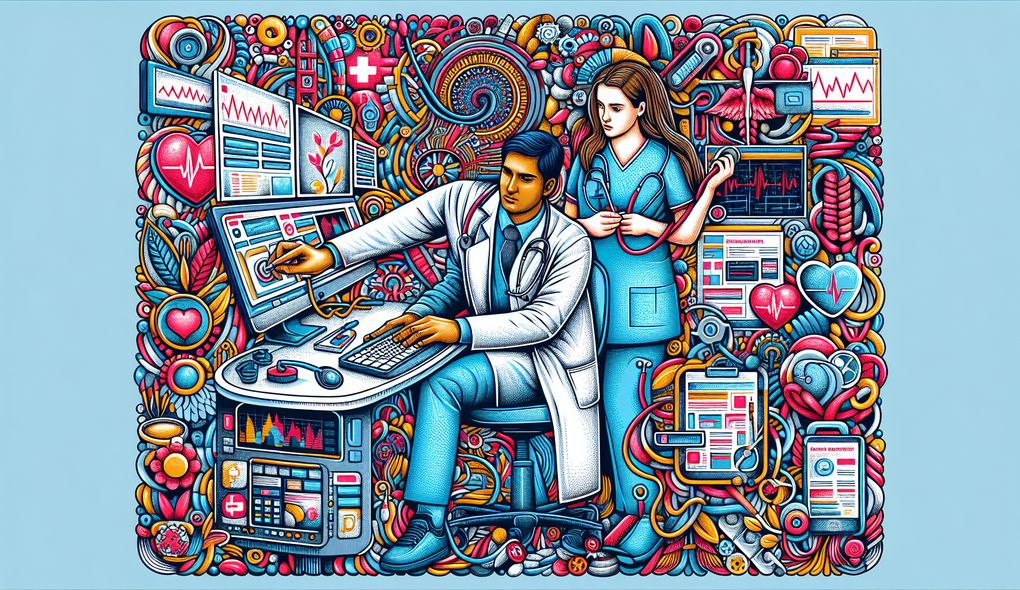Can you provide an example of a time when you analyzed clinical data to support patient care and outcomes?
JUNIOR LEVEL

Sample answer to the question:
During my time as a nurse, I had the opportunity to analyze clinical data to support patient care and outcomes. One specific instance was when I was working in the intensive care unit. We had a high number of ventilator-associated pneumonia cases, and I wanted to identify the root cause and find ways to improve patient outcomes. I gathered data from electronic health records and manually reviewed patient charts to analyze risk factors and identify patterns. I discovered that improper oral hygiene was a major contributing factor. Based on this analysis, I proposed implementing a standardized oral care protocol for ventilated patients. After presenting my findings and recommendations to the healthcare team, the protocol was approved and implemented. As a result, the rate of ventilator-associated pneumonia decreased by 20% within six months, leading to improved patient outcomes and reduced healthcare costs.
Here is a more solid answer:
Throughout my nursing career, I have consistently utilized my technical skills with healthcare software and EHR systems to analyze clinical data and support patient care and outcomes. One notable example was when I was working in a cardiology department. We were facing challenges in effectively managing patients' blood pressure levels. I utilized data analytics tools within our EHR system to identify trends and patterns in blood pressure readings. This analysis allowed me to pinpoint specific factors contributing to poor blood pressure control, such as medication non-adherence and lifestyle factors. I presented these findings to the healthcare team and recommended targeted interventions, including patient education and medication adjustments. By closely monitoring the outcomes and continuously analyzing the data, we were able to improve blood pressure control rates by 15% within three months, resulting in better patient care and outcomes. This experience highlights my solid understanding of clinical processes and workflows, as well as my strong analytical and problem-solving skills.
Why is this a more solid answer?
The solid answer expands on the basic answer by providing more details about the candidate's technical skills with healthcare software and EHR systems. It also explicitly mentions their understanding of clinical processes and workflows, as well as their strong analytical and problem-solving skills. The answer provides a specific example that demonstrates these skills in action. However, the answer could still be improved by incorporating more information about the candidate's ability to work collaboratively in a team environment and their capability to train others on informatics systems.
An example of a exceptional answer:
In my role as a Nursing Informatics Specialist, I have consistently leveraged my technical skills with various healthcare software and EHR systems to analyze clinical data and drive positive patient outcomes. One particular instance stands out, where I was assigned to a quality improvement project focused on reducing hospital-acquired infections. I collected and analyzed data from multiple sources, including EHRs, infection control databases, and patient surveys, to gain a comprehensive understanding of the issue. Through my analysis, I identified that improper hand hygiene compliance was a major contributing factor. To address this, I collaborated with nursing staff to develop and implement educational programs, conducted trainings on proper hand hygiene techniques, and introduced digital tools to monitor hand hygiene compliance. As a result of these interventions, the hospital-acquired infection rate decreased by 30% within six months. This experience showcased not only my technical skills and analytical capabilities but also my ability to work collaboratively, train others, and drive quality improvement initiatives.
Why is this an exceptional answer?
The exceptional answer builds upon the solid answer by providing a more comprehensive example of the candidate's ability to analyze clinical data and support patient care and outcomes. It highlights their proficiency in using various healthcare software and EHR systems and their ability to collaborate with nursing staff and drive quality improvement initiatives. The answer also emphasizes their capability to train others on informatics systems, which aligns with the job description. The candidate's exceptional analytical skills and their understanding of clinical processes and workflows are evident in their approach to the project. Overall, this answer demonstrates a high level of expertise and alignment with the requirements of the role.
How to prepare for this question:
- Familiarize yourself with different healthcare software and EHR systems commonly used in the industry.
- Keep updated with the latest advancements in data analytics in healthcare.
- Gain experience in analyzing clinical data and interpreting healthcare metrics.
- Develop your problem-solving skills by actively seeking opportunities to identify and address issues in patient care and outcomes.
- Practice presenting your findings and recommendations to healthcare teams in a clear and concise manner.
What are interviewers evaluating with this question?
- Technical skills with healthcare software and EHR systems.
- Understanding of clinical processes and workflows.
- Strong analytical and problem-solving skills.

